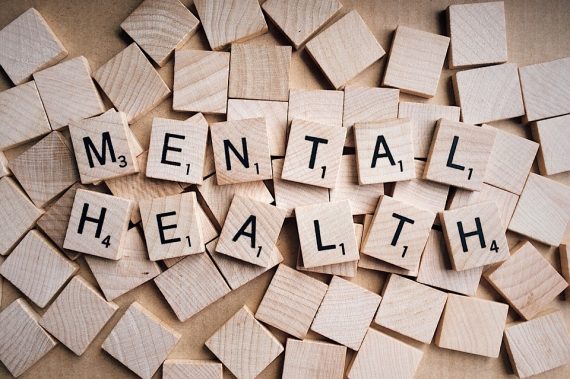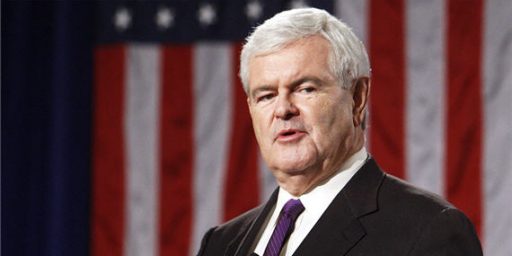freddie deboer checking in and checking out
A public intellectual is getting the help he needs.
Fredrik deBoer, better known in social media circles as freddie deboer, has some distressing news at his personal blog:
Shortly I will be headed to the Richmond University Medical Center to pursue intensive treatment for my mental illness. My day-to-day existence has become entirely unmanageable, and I fear for my health and safety. I do not have much of a plan at this point other than to get checked in. When I am back out I will try to decide if this project can continue. If not I will immediately suspend the Patreon, but feel free to stop your payments yourselves too. It is clear that I can never return to my old ways of engaging online, and I must leave semipublic life permanently, among many other changes. All I want is to build a quiet and simple existence where I can live and work privately without hurting myself or others. At present I have a hard time contemplating the future. I just know that my life is fundamentally broken and drastic measures are necessary to fix it.
My best wishes for Freddie’s speedy and full recovery and hopes that he can return to life as a public intellectual in a capacity that works for him.
He emerged on the national scene in 2008 and managed to make a name for himself. But he’s also faced constant struggle, compounded, as I now know, by the aforementioned mental illness. Specifically, as he elucidates in a recent post at Medium, type II bipolar disorder. The effects of which both drove him to be an incredibly prolific writer and to hate himself for being insufficiently productive. It also explains why, even as a relatively young graduate student, he seemed so obsessed by having health insurance–a rather constant reference in his online writings.
Freddie’s lesser struggles were pretty well documented. Like most people who entered graduate school, at least outside of the very most prestigious programs, over the last thirty years, there was the daunting fact that it was extremely unlikely he’d wind up with a tenure-track professorship. That was followed, not shockingly, with a job search that yielded no jobs his first year out of school and a job in academic administration his next.
Additionally, he was a political opinion writer with very few allies. While I can certainly relate, having morphed over the years from a conservative Republican to an internal critic of the party to someone outside the party, my views are still comparatively mainstream. Freddie is far enough to the left that he was constantly pissing off his natural allies, like the Balloon Juice (of which he’s an alumnus and likely where I first encountered his writing) and Lawyers, Guns, and Money gangs, and winning plaudits from those on the right that he despised. And, again, this was compounded by his illness, as it makes him more strident and confrontational than someone with his intellect and training ought to be:
All of this happens in view of the internet. I really was not made for the digital era, or the digital era was not made for people like me. No one has ever needed the gatekeeping functions of editing and publication more than me, and I was born at precisely the time necessary to be among the first to avoid them. The sense not to share, the ability to police oneself, thinking about consequences, adhering to rules, having a sense of proportion — all of these things, necessary for a healthy online life, are precisely the kind that are so hard to practice in this state. I can break new rules as fast as I can come up with them.
He lately mostly moved out of the political commentary space and started up a blog devoted to education issues. In a lengthy post last week, his reasoning hit home with many of us:
I had to rearrange a few things in my digital social life. And concurrently I had realized that my sense of the world was being distorted by the flow of information that was being deposited into my brain via the internet. I hadn’t really lost a sense of what the “other side” thinks politically; I’m still one of those geezers who forces himself to read Reason and the Wall Street Journal op/ed page and, god help me, National Review. But I had definitely lost a sense of the mental lives of people who did not occupy my various weird interests.
What were other people thinking about, at least as far as could be gleaned by what they shared online? What appeared to be a big deal to them and what didn’t? I had lost my sense of social proportion. I couldn’t tell if the things my friends were obsessing about were things that the rest of the world was obsessing about. Talking to IRL friends that don’t post much or at all online helped give me a sense that I was missing something. But I didn’t know what.
No, I had to use the tools available to me to dramatically change the opinions and ideas and attitudes that were coming flowing into my mental life. And it had become clear that, though I have an RSS feed and I peruse certain websites and publications regularly, though I still read lots of books and physical journals and magazines, the opinions I was receiving were coming overwhelmingly through social media. People shared things and commented on what they shared on Facebook and Twitter, they made clear what ideas were permissible and what weren’t on Facebook and Twitter, they defined the shared mental world on Facebook and Twitter. They created a language that, if you weren’t paying attention, looked like the lingua franca. I’m sure there are people out there who can take all of this in with the proper perspective and not allow it to subtly shape your perception of social attitudes writ large. But I can’t.
It’s all particularly disturbing because a lot of what you see and don’t online is the product of algorithms that are blunt instruments at best.
So I set about disconnecting, temporarily, from certain people, groups, publications, and conversations. I found voices that popped up in my feeds a lot and muted them. I unfollowed groups and pages. I looked out for certain markers of status and social belonging and used them as guides for what to avoid. I was less interested in avoiding certain subjects than I was in avoiding certain perspectives, the social frames that we all use to understand the world. The news cycle was what it was; I could not avoid Trump, as wonderful as that sounds. But I could avoid a certain way of looking at Trump, and at the broader world. In particular I wanted to look past what we once called ideology: I wanted to see the ways in which my internet-mediated intellectual life was dominated by assumptions that did not recognize themselves as assumptions, to understand how the perspective that did not understand itself to be a perspective had distorted my vision of the world. I wanted to better see the water in which my school of fish swims.
There’s actually quite a bit more there but that’s the gist. I’ve certainly felt much of that. It’s part of the reason that, unconsciously, I’d all but stopped blogging for a while. I actually plunged deeper into Twitter. My feed is highly curated, consisting almost entirely of really smart people in the national security, academic, and media worlds. And, while that’s very much the community in which I want to live, it can indeed distort one’s view of reality. Especially in the age of Trump.
Thankfully, my mental health is relatively good and all of this is something I can manage. I’ve intentionally dialed back the Twitter and am slowly getting back into writing here and, hopefully, elsewhere.
Freddie’s situation, and the more tragic recent case of Will Moore, is a reminder that we should be on the lookout for signs that people in our lives need professional help. Freddie has certainly been dropping clues, although perhaps ones that are only obvious in hindsight.







Hope that Mr. deBoer gets the help he wants.
Maybe we all should just take breaks from the internet or limit ourselves to funny cat photos.
@grumpy realist:
Or miniature dachshund videos.
No one should ever doubt Freddie’s courage.
I think the guy’s been doing the Lord’s work for years and hope he can get back to a place where he can continue to do it.
(I know, I know. It’s absolutely shocking that I hold the guy who came up with the term “performative morality” in high regard.)
@grumpy realist: A few months ago I realized that everyday I got offline at about 7 pm, and got back on at 8-9 am, and it was taking me two hours just to get caught up on Twitter every day, and that it had become its own end. Social media is powerful, and reminds me of that quote about something being a great servant but a terrible master.
Apparently DeBoer falsely accused some guy of rape on Twitter some time before yesterday’s announcement.
Mental illness is pretty terrible, but if he was able to write that announcement, he could also have apologized.
Oh, and Glenn Greenwald was (as usual) a dick about it.
/twitterspheric navelgazing
If one has to be on Twitter, a highly curated feed is certainly the way to go.
@drj: In fairness to Greenwald, the guy was trying to hijack a Twitter thread about a guy’s mental health to take up a personal grievance that Greenwald likely had no clue about and then wouldn’t drop it.
I remember FDB as a bright young writer who didn’t seem to land anywhere permanent. Occasionally I’d wonder where he was writing and google-search for him. I hope he can conquer the demons inside and enjoy life, know peace and calm.
There can be no more terrible feeling in the universe than realizing that your mind is trying to destroy you.
James, um, is that cartoon really the best image you could find for this subject?
@drj:
Now I know this is going to sound terribly insensitive and offensive, but…
“Falsely accused some guy of rape on Twitter” sounds like it might be overstating things a bit. What’s the context?
@Not the IT Dept.: I was in a hurry and the only good pictures of Freddie were too small.
@James Pearce:
I don’t know anything more than this.
But apparently quite a few people witnessed the exchange and nobody seems to contradict the account of the accused.
@drj: It’s absolutely true that this happened. Freddie and Harris got in an online fight and Freddie threw out a false allegation of rape as s sort of trump card to win it. When Harris’s former coworkers all called BS, Freddie deleted his account without apologizing or retracting the accusation in any way. Now he has written an account of his struggles that completely omits the harmful actions he took, garnered him immense sympathy, and basically turned himself into the victim of the false rape allegation he leveled at Harris.
Freddie’s bipolar disorder explains his obsessive writing, tweeting, and reading and his apparent conviction that he has all the ideas necessary to properly organize a socialist movement in America. It doesn’t explain being bizarrely hostile to anyone who criticizes you, which is a trend that’s been around for quite some time and has finally culminated in this false rape accusation.
I hope Freddie gets help and I have sympathy for anyone dealing with mental health issues, but Freddie is quite transparently using this to avoid taking responsibility for what he did. As another poster mentioned above, for him to take the time to write this out without giving a single word to his actions or apologizing to Harris is deeply revealing. He found time to advise his Patreon subscribers that they may want to cancel, but none to acknowledge his mistakes or make amends.
The vagueness is working. This post is all over the place and the reactions are similar to Dr. Joyner’s, as you would expect from anyone reading a story that presents nothing but a man being victimized by mental health issues. The reality is that he is masterfully playing this for sympathy and using it to duck responsibility while also, yes, genuinely suffering from mental health issues.
Here’s hoping he gets good and proper help this time, the sort that leads to him taking ownership of his behavior and making amends rather than simply doing some therapy and hopping back online to start the cycle over again.
James: much better choice of image, I think.
Benito: wow. I don’t think you appreciate the devastation that is mental illness. There is no need to be so dickish about FDB’s situation, regardless of what he did or didn’t do. And I am not going to get into a wrangle with you about it, so don’t bother amping up to respond.
Writing – especially when you do a lot of it – can have weird effects on your brain. There are times when it’s rather like a drug, disorienting, distorting. When I was young in the business it would make me emotional. If you’re at all vulnerable it can be a problem. There’s a reason every writer I’ve ever met drinks.
@michael reynolds:
Many years ago, there was an article in The Saturday Review entitled “Drink: The Curse of the Writing Class.” It was a fascinating and horrifying look at the number of writers who were alcoholics, mostly depressives who were self-medicating.
Three years ago, when my father died, I wanted to get in touch with a well-known author who had been his and my friend. We’d been out of touch for a while. I discovered when I tried to email him that, after a period of alcoholism, he’d put a gun to his head just a few weeks before my father died.
@drj:
Did any of them take a screenshot? Not to be pedantic here, but there’s talking shit on Twitter and there’s falsely accusing people of rape. I think it would be useful to society not to blur those lines.
@Benito Suarez:
The guy deleted his account and checked into a mental hospital to rethink his life. Maybe let it be without needing an apology or a retraction.
@CSK:
Writing (especially fiction, but not only fiction) has a lot in common with acting – actors being another group with a tendency to substance abuse. In most jobs you’re doing a thing. If you’re not doing a thing you’re thinking about a thing. In the morning you drink your coffee and prepare your mind to come to grips with the thing.
In fiction writing (like acting) you’re not doing a thing or planning a thing, you’re trying to convince your subconscious mind to feel an emotion not its own, to converse with people who aren’t there, to project a non-existent reality into the future. It can be strange. If you have a strong sense of self you glide on through like Tom Hanks, and if you don’t you end up like Lindsay Lohan.
Best job in the world, don’t get me wrong, but I am always grateful for the fact that I’m married to a writer so our respective crazy meets with understanding. It’s funny, though, when I first started hanging out with YA authors I had the vague suspicion that they might tend toward teetotal. Nope. Most years I go to the Edinburgh kidlit festival where they have a yurt set up for authors as a green room: sandwiches, coffee and a big, giant bottle of Highland Park with a pump. Can’t wait to see what the adult mystery writers serve.